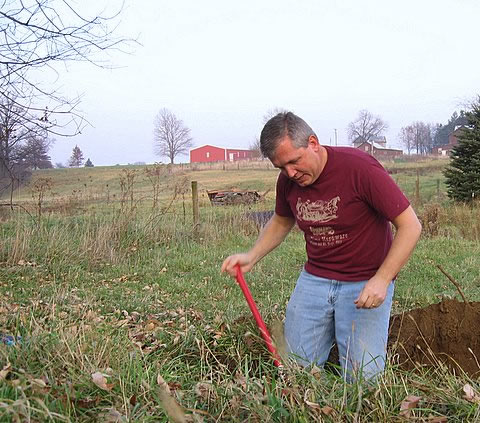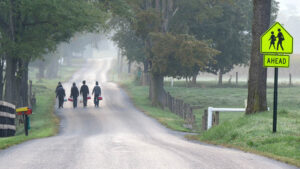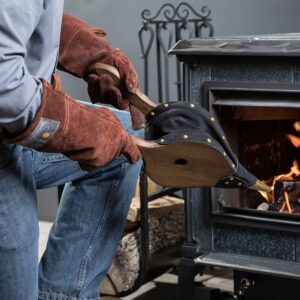At Lehman’s, we’ve been hearing local folks gossip about how the Indiana Amish have been hurt by the economy. This morning, an article in the Wall Street Journal confirmed our fears.
According to the article, they were drawn into the economic boom by high pay in the RV factories of northern Indiana. Instead of following their Dads into the fields, they followed the money. In the local slang, they became what is known as “lunchbox Amish” because they no longer “put their feet under the kitchen table” at noon. I’m guessing that by hiring into the factories, most could roughly double their annual income.
Dad and I often visit those same Amish communities looking for new product ideas and to “talk shop” with old friends. We saw how the unaccustomed wealth was changing their culture and eroding their conservative lifestyle.
 Many of the Amish families we visited had phones and fine new brick-trimmed homes. You could gauge the growing wealth by measuring how many feet of vinyl fence each farm sprouted ($8-$10/lineal foot).
Many of the Amish families we visited had phones and fine new brick-trimmed homes. You could gauge the growing wealth by measuring how many feet of vinyl fence each farm sprouted ($8-$10/lineal foot).
We noticed that the Indiana buggies had gotten much more plush than Ohio buggies. It seemed like nearly everybody had hired drivers to haul them from place to place, leaving their brand new buggies at home. We heard that some even bought second homes in Florida and spent most of the winter there (often using electricity just like their non-Amish neighbors).
By the time the RV industry crashed late last year, we were told that by some estimates about half of the Amish men in northern Indiana lost their jobs. Since the Amish generally don’t accept unemployment, this put many in dire straits.
The Wall Street Journal article says the informal bank formed by the Amish to help church members finance their homes was nearly bankrupted by an old fashioned bank run. It cites an Amish father who decries his own “keeping-up-with-the-Joneses” lifestyle. Suddenly, folks were looking out for the next dollar instead of looking out for each other.
Although many are out of a job and the community is suffering, I expect (with typical resilience) that the Indiana Amish will survive this downturn. But there are a good lessons in it for us all.
The Wall Street Journal article quotes Steve Raber, an Amish business man who said, “When you have plenty of money, you have a tendency to slowly drift away (from your community).”
Another Amish man, Freeman Miller, said, “We were all going way too fast. This has made everybody stop and realize we’re just pilgrims here, the Almighty is in charge.”
































This is not just a problem for Amish, but for all people in general, The Grass is Always Greener………..